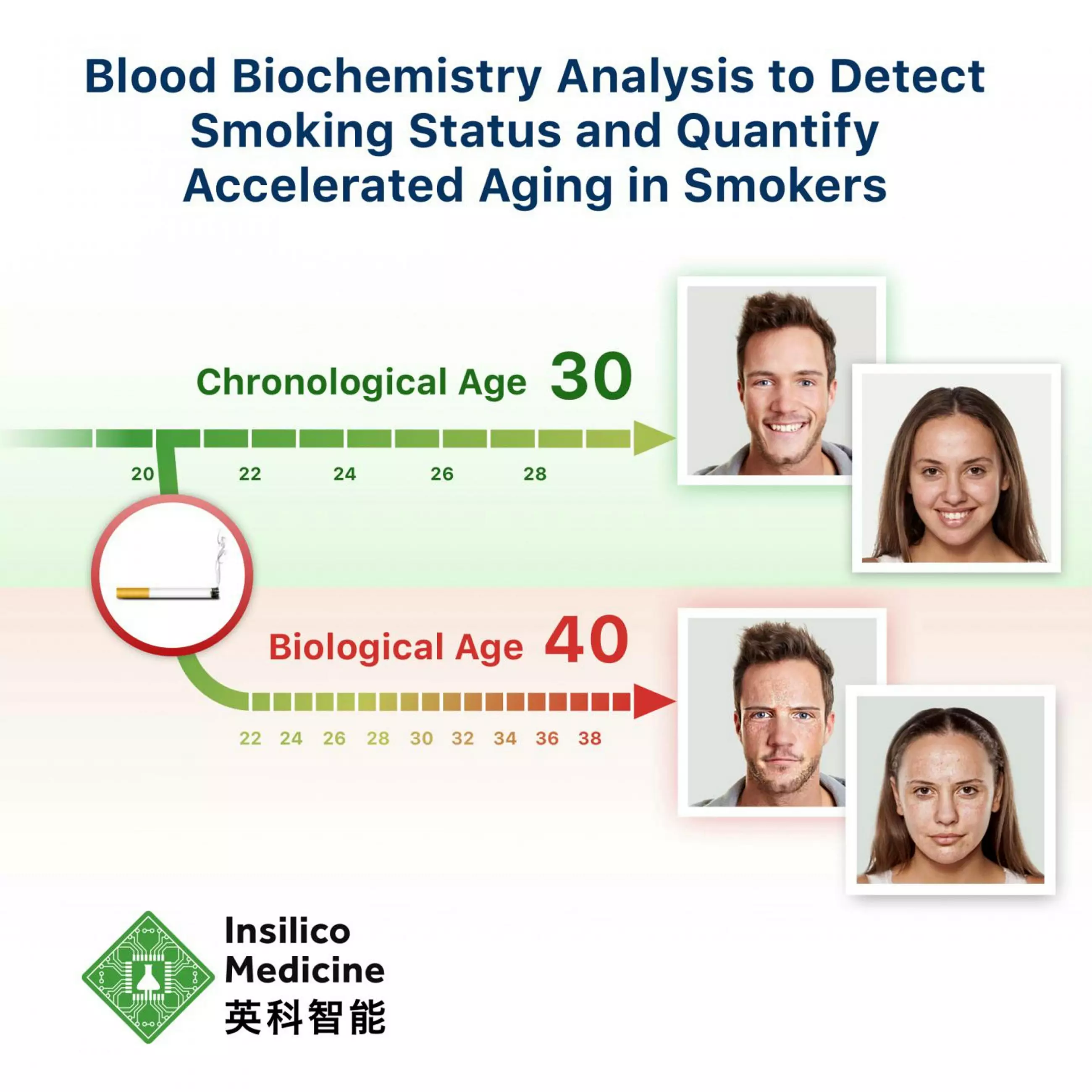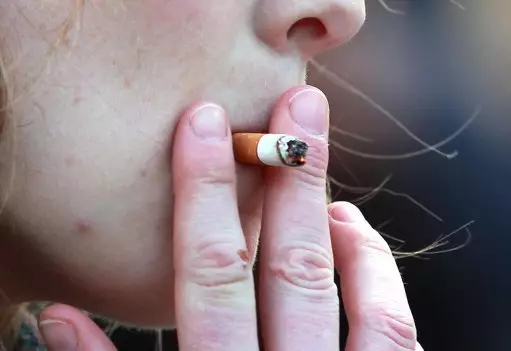
Remember the days when you couldn't wait to be a grown-up? Seems so much more daunting by your mid-20s, doesn't it? Especially when someone points out a grey hair, followed by casually remarking that they saw it hours ago but 'just didn't want to say anything'. Yeah, thanks 'mate'.
Whether it's grey hairs, a dodgy back or something else, you probably put the tell-tale signs of getting older down to genetics - why not blame the 'rents, after all? But if you're a smoker, it could all be down to your habit - according to new research, smoking can speed up the ageing process in younger people by more than two decades.
I wonder how many people are going to stop smoking, in a bid to keep themselves looking youthful. Y'know, regardless of the associated health complications that we have known about for years...
The human body has two different ages - chronological and biological. The latter refers to how old a person seems, rather how long they have been alive.
Advert
We don't mean whether or not they still play knock-and-run at 32. It's how old their body seems. Including the way they look.
Researchers say the results of blood tests on 149,000 adults found that smokers were estimated to be two times as old as their chronological age, compared to non smokers, by the time they reach middle-age.
More than seven in ten samples from smokers younger than 30 were predicted to show biological ages in the ranges of 31 to 40 years old - or 41 to 50.
On the other hand, the ages of most of the non-smokers (62 percent) were calculated accurately.

Study author Dr Polina Mamoshina said: "Compared with non-smokers, smokers showed an accelerated rate of ageing through to age 55 years, regardless of sex."
Advert
Curiously, these differences then disappeared - and perhaps even reversed themselves for the most elderly subjects.
She explained: "In the context of biological ageing, this suggests the contribution of tobacco smoking as an external factor of ageing may eventually be masked by the intrinsically physiologically deleterious nature of the ageing process.
"Alternatively, the people most affected by smoking may have died at an earlier age and thus were be excluded from the old-age smoking group."
The dangers of smoking are well known, increasing the risk of a host of conditions from cancer and cardiovascular disease to asthma and diabetes.
Advert
This is on top of making an individual appear older, narrowing the skin's blood vessels, causing it to sag and wrinkle.

But the study - the first of its kind - suggests the habit causes even more damage to the internal workings of the body than previously feared.
Dr Mamoshina, a senior research scientist at Baltimore-based artificial intelligence solutions company Insilico Medicine, said: "Smoking is a real problem that destroys people's health, causes premature deaths and is often the cause of many serious diseases."
Advert
Previous research has shown biological age is more useful than using a date of birth for predicting when a person will die.
In the UK there are about 9.4 million current smokers, and 38m in the US.
It is the biggest cause of death and illness in Britain, claiming more than 120,000 lives each year through associated diseases.
The results were the same for both male and female smokers. Dr Mamoshina said that smoking has long been proven to negatively affect people's overall health in multiple ways.
Advert
So her team set out to determine biological age differences between smokers and non-smokers using blood biochemistry and recent advances in AI.
Dr Mamoshina added: "I am pleased to be part of the research study, which provides fascinating scientific evidence that smoking is likely to accelerate ageing."
You'd have to imagine the doctor and her team will almost certainly have stopped a few people after they read this.
Featured Image Credit: SWNSTopics: Study, World News, Interesting, Community, Smoking, Health